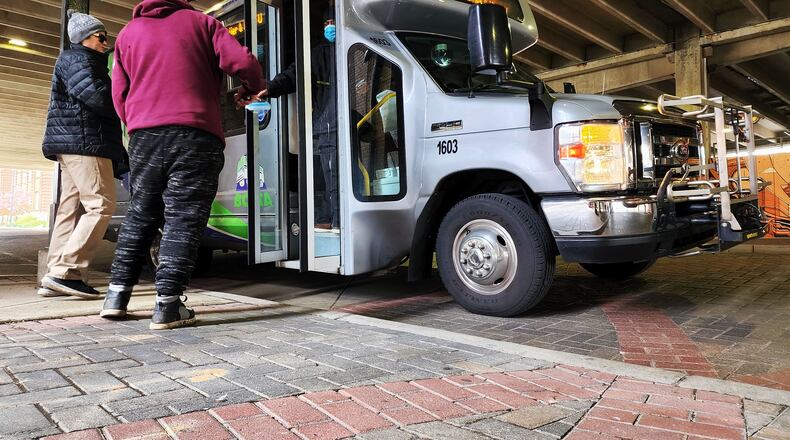Executive Director Matt Dutkevicz told the Journal-News public participation is vital to creating a system that serves the community in the manner people need.
“We need public feedback from the community about what level of service is right, where they want to see routes go, whether we have gotten all these alignments right, do they serve all the locations people want or have we completely left out any locations people are looking for,” Dutkevicz said.
Some of the significant service improvement ideas include:
- They are proposing starting the 42X Cincinnati commuter route in Middletown rather than West Chester Twp. and adding stops to include the hospital systems in uptown before going downtown;
- Extending the R3 route between Hamilton and Oxford up to the Walmart on U.S. 27 and down to Tr-County;
- Additional service on the east and west sides of Hamilton;
- Changes in Oxford to improve frequency;
He is urging as many people as possible to take the survey — 308 from the general public took it in the spring — which can be found at: bcrtatransitplan.com. They are also handing out paper surveys on the buses. They are taking feedback until Nov. 24.
Funding is not a big focus for this step in the survey process but there is a question on the survey that asks participants if they would support a small sales tax hike to help fund the operation. Most of the large transit systems utilize sale tax to fund their operations. BCRTA’s system is funded by federal funding/grants and contributions from Miami University.
The 2022 budget projects $10.1 million in revenues, nearly half of it from the federal government, to support almost $8.2 million in expenses. Dutkevicz told the Journal-News until they settle on the final plan they won’t know if they might need additional revenues.
“There’s only so many ways you can fund transit, we need to know what kind of service the community is looking at because funding might not be an issue,” he said. “We might have enough money to do whatever comes out of this survey. But I don’t know that, we need public feedback.”
The county has one of the lowest sales tax rates in the state at 6.5% and those revenues are the largest funding source for the county. Butler County Development Director David Fehr, who is on the BCRTA board, told the Journal-News it is premature to discuss a transit system sales tax and he doubts the county commissioners would favor a rate hike.
“I guess we have to look at everything but generally speaking our elected officials have been pretty adverse to any tax increases or sales tax increases,” Fehr said. “We have not vetted that part of it yet, that’s for sure.”
Dutkevicz and his team are starting to meet with government officials to give them an overview of the proposals, they made a presentation to the commissioners on Monday. Commissioner T.C. Rogers said he recently learned “the biggest problem for people was transportation getting people to work.” He said some of the people have cars but experience breakdowns or other issues.
“I thought is there a way we can say if you want to work we’ll get you there,” Rogers said. “Now that’s far out but I just wondered whether this is a way or are there volunteers who could take somebody to work?”
Dutkewicz said job transportation is a top priority for them and they have both fare-free fixed routes as well as the Uber-type BGo program.
“This is me speculating, we don’t have the final report yet but we may elect to create fewer fixed routes with better frequencies so people can get to and from those places they need to go more often,” he said. “Then try to cover the rest of the in that BGo or Uber, Lyft type service. It’s a little more expensive but when you’re not running as many trips it turns out to be more efficient.”
After the new survey results are in the consultant will come up with a final plan for the BCRTA board to approve and implement early next year.
About the Author

